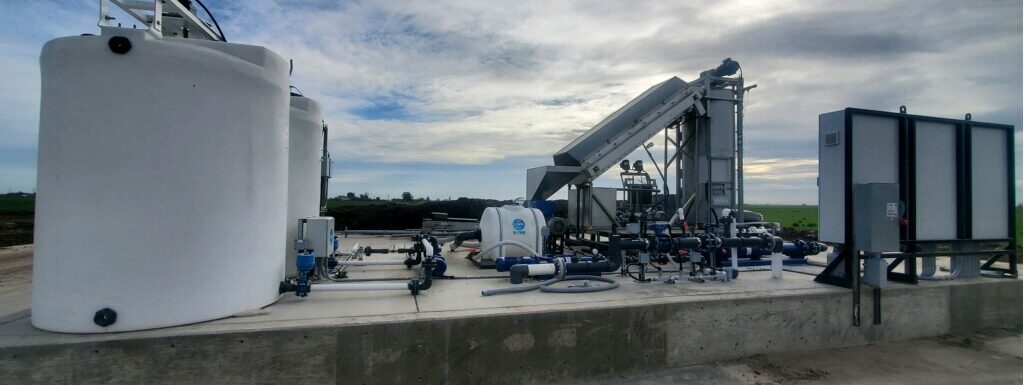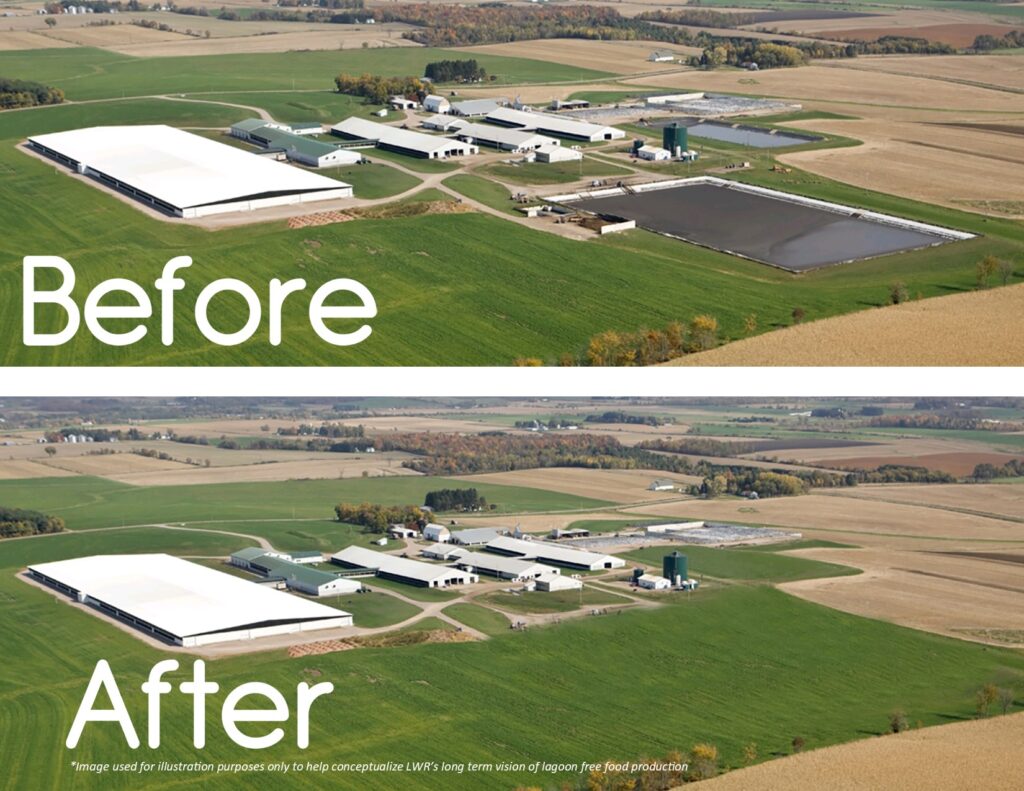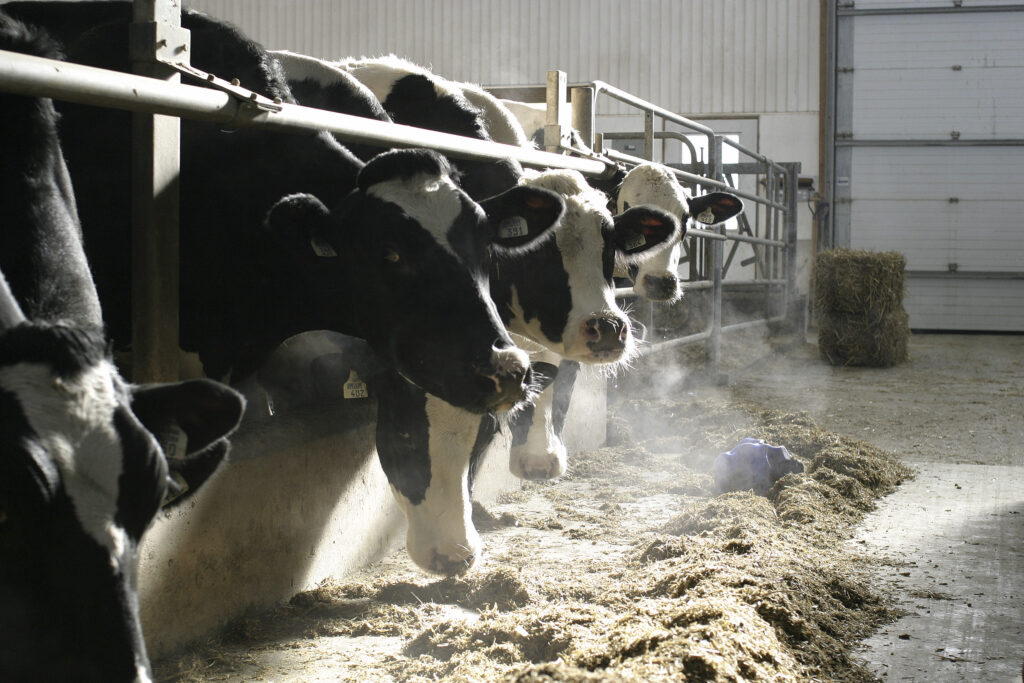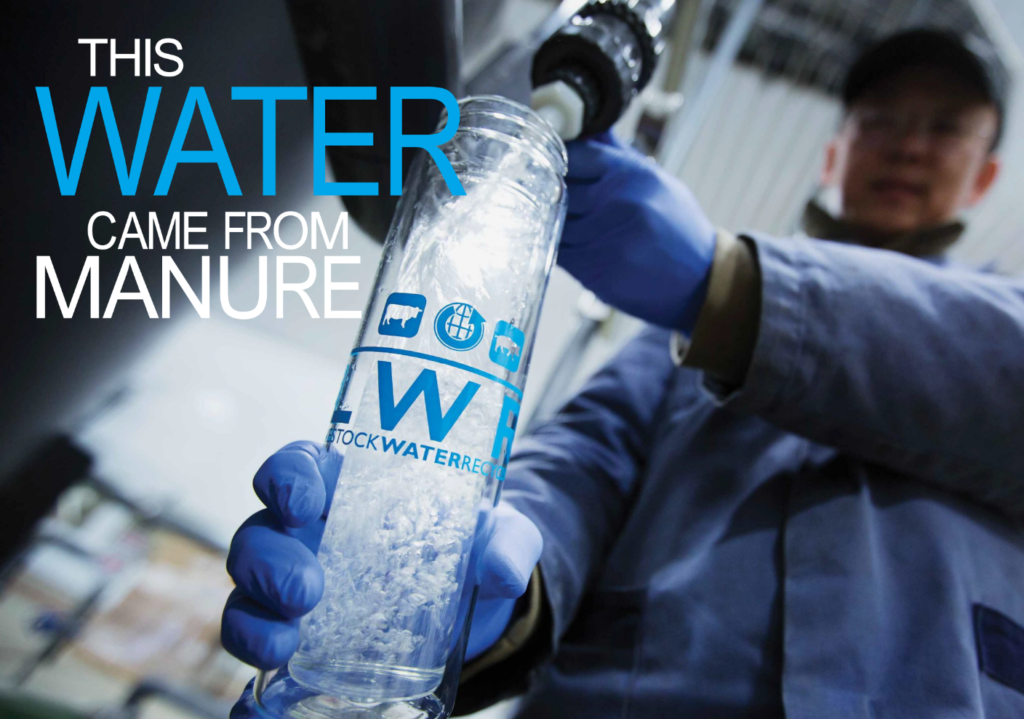An Interview with LWR CEO and Co-Founder Karen Schuett: a waste-to-worth value proposition

How did you uncover this particular waste-to-worth opportunity?
Initially, my work focussed on the treatment of hydrocarbon contaminated wastewaters. I was introduced to the worldwide need to treat animal wastewater when a local hog farm came looking for help with a very full manure lagoon. I immediately recognized this as a waste-to-worth opportunity. Manure lagoons only actually contain only 5% manure, and the rest is WATER! The ag sector has always championed closed-loop systems. I knew that if we could provide them with a tool to engage their profitability within the circular economy, they could boost their competitive advantage while creating a long-term environmentally sustainable business.
Can sustainability and profit goals co–exist?
I certainly believe that mitigating environmental risk can drive profitable growth. We spent years cultivating a strong value proposition for the circular economy that would benefit farm businesses and the environment. The recent momentum within the renewable natural gas sector is drastically improving that value proposition. Canada is home to 279 biogas projects following a decade that saw the industry grow by almost 50% between 2011 and 2020. These projects capture waste methane from manure, landfills, green bin programmes, and municipal wastewater treatment facilities, transforming it into 196 MW of clean electricity and 6 million GJ of renewable natural gas (RNG), which is equivalent to more than nine large hydro dams. The Canadian 2020 Biogas Market Report estimates that our country has only tapped into 13% of its easily accessible biogas, so the potential for food producers to profit off of this sustainable energy is tremendous.
What role do partnerships and collaboration play in creating a rethinking our global food system?
Food sustains us and fuels our wellbeing, but food systems have impacted our planet. Food systems rely on our natural resources. Our global food vision makes more efficient and sustainable use of natural resources, creating regenerative food systems around the world. Industry leaders, food retailers, consumers, and government must all come together to encourage and enable a systemic transformation as we rethink our food system. With our technology, our farm clients can increase food production while creating new revenue opportunities helping to advance the global adoption of other clean technologies.

Why do you think it’s essential for the food industry to embrace technology?
From increased biosecurity, to sustainability, to consumer transparency, and profitability, technology adoption is imperative to help grow food that consumers can trust while also ensuring the long-term resiliency of these farm businesses. The technology ensures a safe and reliable food supply chain and helps producers increase food production while protecting and preserving our planet’s most precious resources. More than 820M people go to bed hungry. We must increase agriculture productivity, and technologies that can increase food production sustainably are crucial in alleviating world hunger.
What are you most proud of when it comes to your business?
Today, we have successfully completed projects across North America, the Middle East, the Arctics and the Tropics, effectively treating various diverse waste streams. Including dairy and hog manure, paunch manure, livestock hauler truck wash water, egg wash water, food processing liquids, and mushroom farming wastewater that is contaminated with horse manure. There is a steady demand from the renewable natural gas sector to help make our green energy even greener by concentrating manure feedstock for anaerobic digestion and treating digestate following gas production.
On the technology side, we have developed the only data-driven and ML-enabled technology to process and digitize the world’s manure. Our on-farm fertilizer PLANT, complete with an ML automation and data analytics package, modernizes manure handling to increase the nutrient value and eliminate manure’s economic and environmental risks. We are a technology company partnering high-tech with livestock agriculture, completely transforming the old-fashioned practice of waste storage to enable a more sustainable, regenerative, and transparent food supply chain. As a result, PLANT protected valuable waterways from harmful nutrient runoff, regenerating soils with healthy organics, reducing greenhouse gas emissions, creating safer communities, recycling clean reusable water, and increasing food production for a growing population. With our solution, the largest dairy farm in Lebanon has transformed an idle plot of land into crops to feed their cows. This is a pivotal moment in the Middle East as this precedent could mean complete independence from imported feed crops.

Can you share some high-level metric(s) to measure the impact your company aims to create in the next 5 years?
Our commercialized technology solution operating in the market already has the combined potential to treat over one billion gallons of manure annually. Together, our systems can recover well over half a billion gallons of clean, reusable water. Through digitization and aggressive revenue targets, our goal is to transform one trillion gallons of manure and food waste bioliquids into recycled clean water by 2050, directly impacting 10 of the UN’s Sustainable Development goals.

The recent pandemic has had a colossal impact on the way the world thinks about food. What measures did you implement to get your business through such a difficult time?
Our mission to provide value-additive treatment solutions that improve costs and overall sustainability for livestock and food waste facilities continues to guide us. Our client farmers haven’t stopped working, and we haven’t stopped supporting them. We have taken unprecedented steps to protect our employees while continuing to support our clients. Food production is a critical function, and food supply producers have a special responsibility in this time of uncertainty. Our client farmers know that we stand by them, and we have assured them that we will remain available to provide service as they continue to produce nutritious food sustainably. Never before has the spread of zoonotic disease from animal agriculture been so topical. We are laser-focused on reducing any impacts from manure in the supply chain while proving the incredible value opportunity found in our waste-to-worth technology.














